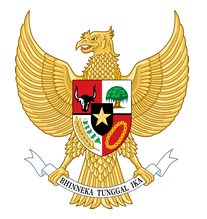The Dutch began to colonize Indonesia in the early 17th century; Japan occupied the islands from 1942 to 1945. Indonesia declared its independence shortly before Japan's surrender, but it required four years of sometimes brutal fighting, intermittent negotiations, and UN mediation before the Netherlands agreed to transfer sovereignty in 1949. A period of sometimes unruly parliamentary democracy ended in 1957 when President SOEKARNO declared martial law and instituted "Guided Democracy." After an abortive coup in 1965 by alleged communist sympathizers, SOEKARNO was gradually eased from power. From 1967 until 1988, President SUHARTO ruled Indonesia with his "New Order" government. After rioting toppled SUHARTO in 1998, free and fair legislative elections took place in 1999. Indonesia is now the world's third most populous democracy, the world's largest archipelagic state, and the world's largest Muslim-majority nation. Current issues include: alleviating poverty, improving education, preventing terrorism, consolidating democracy after four decades of authoritarianism, implementing economic and financial reforms, stemming corruption, reforming the criminal justice system, holding the military and police accountable for human rights violations, addressing climate change, and controlling infectious diseases, particularly those of global and regional importance. In 2005, Indonesia reached a historic peace agreement with armed separatists in Aceh, which led to democratic elections in Aceh in December 2006. Indonesia continues to face low intensity armed resistance in Papua by the separatist Free Papua Movement.
Indonesia is a presidential republic.
Source: CIA World Factbook
Members:
Resources
Displaying 11 - 15 of 15Program to Accelerate Agrarian Reform (One Map Project)
General
The Project Development Objective is to establish clarity on actual land rights and land use at the village level in the target areas.
Act of the Republic of Indonesia No. 23 of 2014 on the Local Government.
This Act, consisting of 411 articles divided into 27 Chapters, establishes composition, duties and responsibilities of the Local Government. It specifies implementation of government affairs which will be carried out by the local government as well as related legislation according to the principles of autonomy and assistance with the broad autonomy within the system and the principles of the Republic of Indonesia as defined in the Constitution of the Republic of Indonesia Year 1945.
Law of the Republic of Indonesia No. 6 of 2014 about Village.
This Law, consisting of XIII Chapters, regulates the structure, rights and obligation and other requirements of a village and traditional village. The Village is a unit of community that has boundaries with the authority to regulate and manage the affairs of government, the interests of local communities based on community initiatives, the right of the origin, and/or traditional rights recognized and respected in the system of government of the Republic of Indonesia.This Law is divided as follows: General Provisions (Chap. I); Position and Type of Village (Chap.
Law of the Republic of Indonesia No. 39 of 2014 about Plantations.
This Law, consisting of 118 articles divided into XIX Chapters, regulates the Plantation sector. The implementation of the Law on Plantation aims to: a. improve the welfare and prosperity of the people; b. increasing source of foreign exchange; c. provide employment and business opportunities; d. increase production, productivity, quality, value added, competitiveness, and market share; e. improve and meet the needs of consumer and industrial raw materials in the country; f. provide protection to the plantation business communities and society; g.
Law of the Republic of Indonesia No. 21 of 2014 about Geothermal.
This Law, consisting of 88 articles divided into XII Chapters, considers that Act No. 27 of 2003 on Geothermal does not regulate the use of Geothermal comprehensively so it needs to be replaced. Geothermal activity implementation follows the following principles: a. benefits; b. efficiency; c. justice; d. economic optimization in the utilization of energy resources; e. affordability; f. sustainable; g. independence; h. security and safety; and i. preservation of the environment. The arrangement of the Geothermal aims: a.



